Crucial v4 (256GB) Review
by Kristian Vättö on November 22, 2012 1:01 PM ESTRandom Read/Write Speed
The four corners of SSD performance are as follows: random read, random write, sequential read and sequential write speed. Random accesses are generally small in size, while sequential accesses tend to be larger and thus we have the four Iometer tests we use in all of our reviews.
Our first test writes 4KB in a completely random pattern over an 8GB space of the drive to simulate the sort of random access that you'd see on an OS drive (even this is more stressful than a normal desktop user would see). I perform three concurrent IOs and run the test for 3 minutes. The results reported are in average MB/s over the entire time. We use both standard pseudo randomly generated data for each write as well as fully random data to show you both the maximum and minimum performance offered by SandForce based drives in these tests. The average performance of SF drives will likely be somewhere in between the two values for each drive you see in the graphs. For an understanding of why this matters, read our original SandForce article.
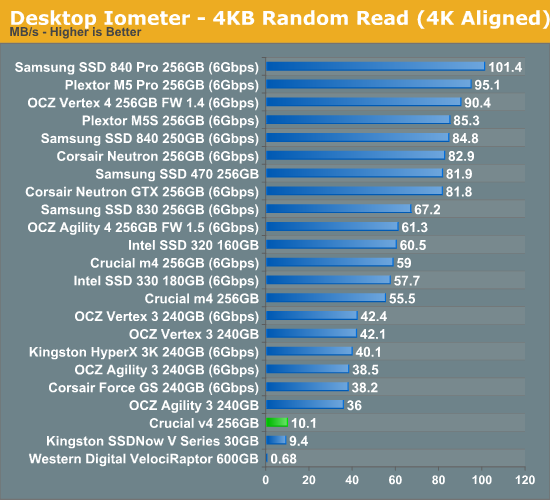
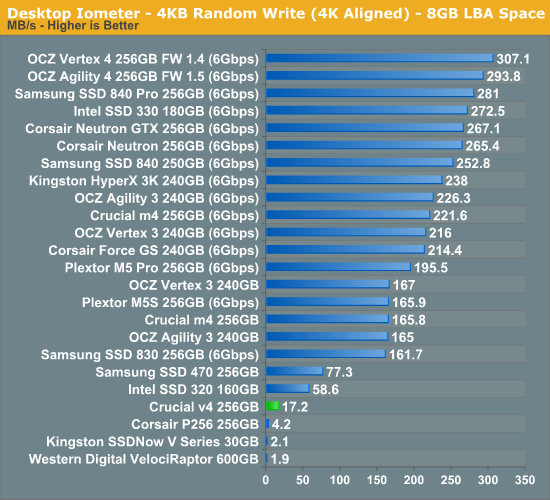
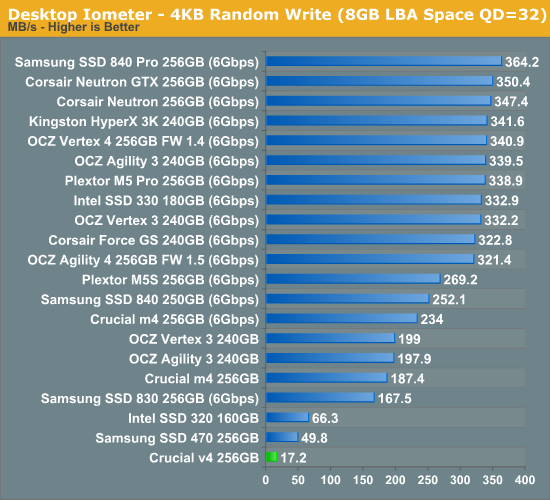
There isn't really a good way to put this: random performance is terrible. We have to go back at least two years to find SSDs this slow and even then we are talking about SSDs that were some of the worst ones that were available. I included a few older SSDs (e.g. Kingston SSDNow V Series and Corsair P256) to show that the v4 isn't the worst SSD on earth, but compared to other recent SSDs it's behind - by a lot. The only "good" news is just how poor even the 600GB VelociRaptor is by comparison; we're still an order of magnitude faster than one of the fastest hard drives for random IO.
Sequential Read/Write Speed
To measure sequential performance I ran a 1 minute long 128KB sequential test over the entire span of the drive at a queue depth of 1. The results reported are in average MB/s over the entire test length.
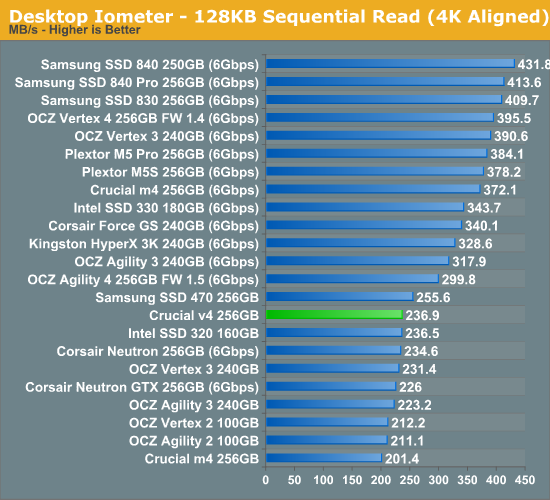
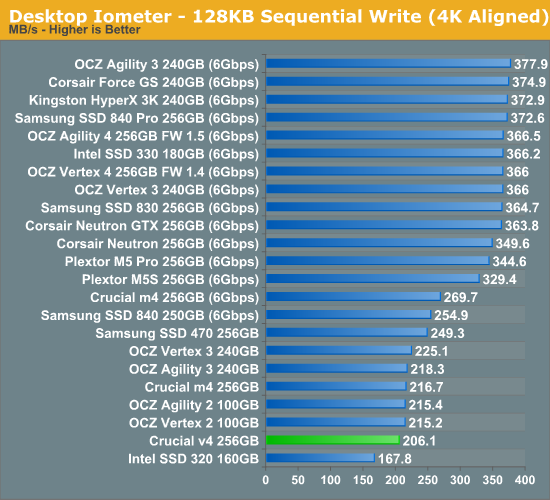
Sequential speeds are fortunately much better and we are talking about performance comparable to SATA 6Gbps operating at SATA 3Gbps speeds.










44 Comments
View All Comments
andrejg - Tuesday, November 27, 2012 - link
For my HP635 notebook with AMD E450 chipset/platform. It turned out, that it is incompatible with notebook. Tried all kinds of tricks, from FW updates/upgrades... SSD just sometimes , not allways, didn't work properly at boot, showing boot sector problems and errors. The same SSD works very good in a desktop. Anyway, it is priced too high to be worth considering, since you can get Intel 330 or Samsung 830 for couple of euros more, but with much much higher speeds and with latest SATA speed.Oh, and before giving up I really spent many days in front of google, forums, support pages from HP and Crucial etc. What is funny is, that this very HP635 is stated as supportedfor a v4 128 on a Crucial web site...
jack.fxx - Tuesday, November 27, 2012 - link
The SSD you bought is probably faulty and you should ask for replacement. Even if it's not faulty, it still doesn't work as specified.batguiide - Sunday, December 9, 2012 - link
Sharea website with you ,
( socanpower. ca)
Believe you will love it.
laptop battery,CPU fan,AC power adapters.DC power adapters and laptop keyboard.
I bought two. Cheap, good quality, you can
go and ship with there.
legalsuit - Wednesday, October 23, 2013 - link
So I bought a Crucial v4 128gb to use in my PC laptop. It was slower than the hdd, so I moved it to a desktop... still too slow... then finally as a last ditch effort, I threw into an old 2006 Mac Book Pro (A1150). Wow, it worked perfectly.Just goes to show. Old tech and old tech make a happy marriage. And don't get this if you have anything newer, just won't work right.